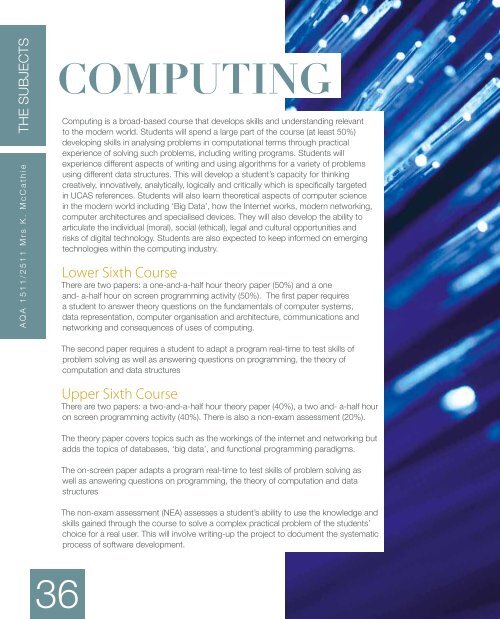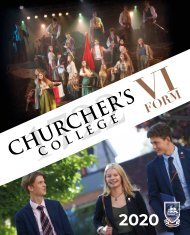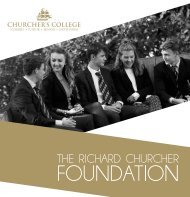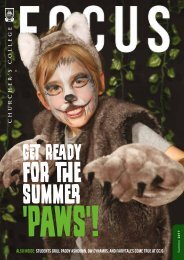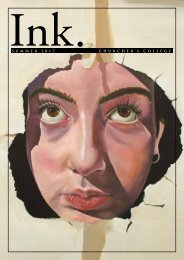Churcher's College Sixth Form Prospectus 2018
Our Sixth Form Prospectus provides course details, an insight into life as a Sixth Former at Churcher's, testimonials from students as well as the universities and types of careers they go on to do in the world of work.
Our Sixth Form Prospectus provides course details, an insight into life as a Sixth Former at Churcher's, testimonials from students as well as the universities and types of careers they go on to do in the world of work.
Create successful ePaper yourself
Turn your PDF publications into a flip-book with our unique Google optimized e-Paper software.
THE SUBJECTS<br />
AQA 1511/2511 Mrs K. McCathie<br />
COMPUTING<br />
Computing is a broad-based course that develops skills and understanding relevant<br />
to the modern world. Students will spend a large part of the course (at least 50%)<br />
developing skills in analysing problems in computational terms through practical<br />
experience of solving such problems, including writing programs. Students will<br />
experience different aspects of writing and using algorithms for a variety of problems<br />
using different data structures. This will develop a student’s capacity for thinking<br />
creatively, innovatively, analytically, logically and critically which is specifically targeted<br />
in UCAS references. Students will also learn theoretical aspects of computer science<br />
in the modern world including ‘Big Data’, how the Internet works, modern networking,<br />
computer architectures and specialised devices. They will also develop the ability to<br />
articulate the individual (moral), social (ethical), legal and cultural opportunities and<br />
risks of digital technology. Students are also expected to keep informed on emerging<br />
technologies within the computing industry.<br />
Lower <strong>Sixth</strong> Course<br />
There are two papers: a one-and-a-half hour theory paper (50%) and a one<br />
and- a-half hour on screen programming activity (50%). The first paper requires<br />
a student to answer theory questions on the fundamentals of computer systems,<br />
data representation, computer organisation and architecture, communications and<br />
networking and consequences of uses of computing.<br />
The second paper requires a student to adapt a program real-time to test skills of<br />
problem solving as well as answering questions on programming, the theory of<br />
computation and data structures<br />
Upper <strong>Sixth</strong> Course<br />
There are two papers: a two-and-a-half hour theory paper (40%), a two and- a-half hour<br />
on screen programming activity (40%). There is also a non-exam assessment (20%).<br />
The theory paper covers topics such as the workings of the internet and networking but<br />
adds the topics of databases, ‘big data’, and functional programming paradigms.<br />
The on-screen paper adapts a program real-time to test skills of problem solving as<br />
well as answering questions on programming, the theory of computation and data<br />
structures<br />
The non-exam assessment (NEA) assesses a student’s ability to use the knowledge and<br />
skills gained through the course to solve a complex practical problem of the students’<br />
choice for a real user. This will involve writing-up the project to document the systematic<br />
process of software development.<br />
36


